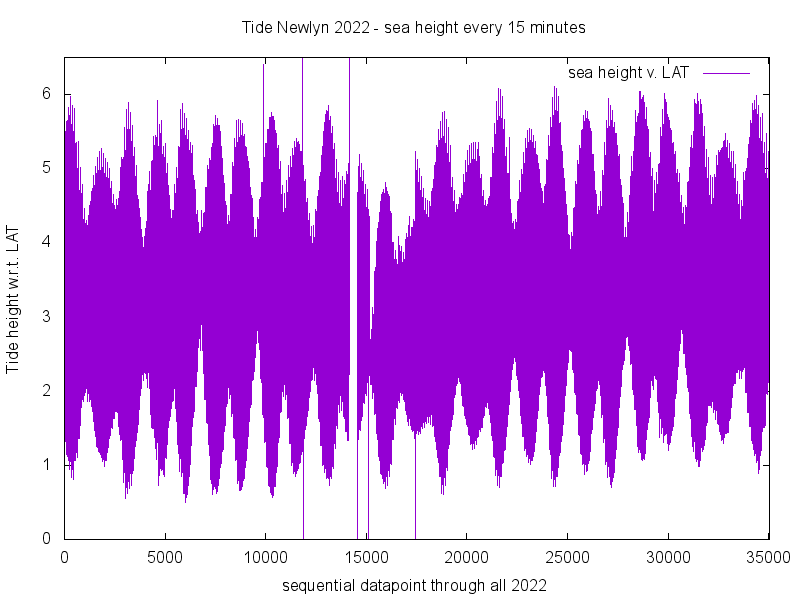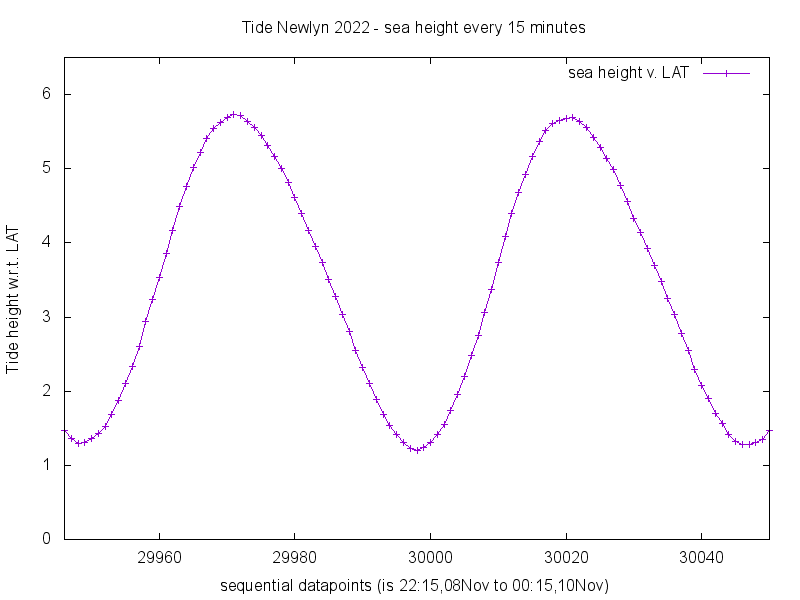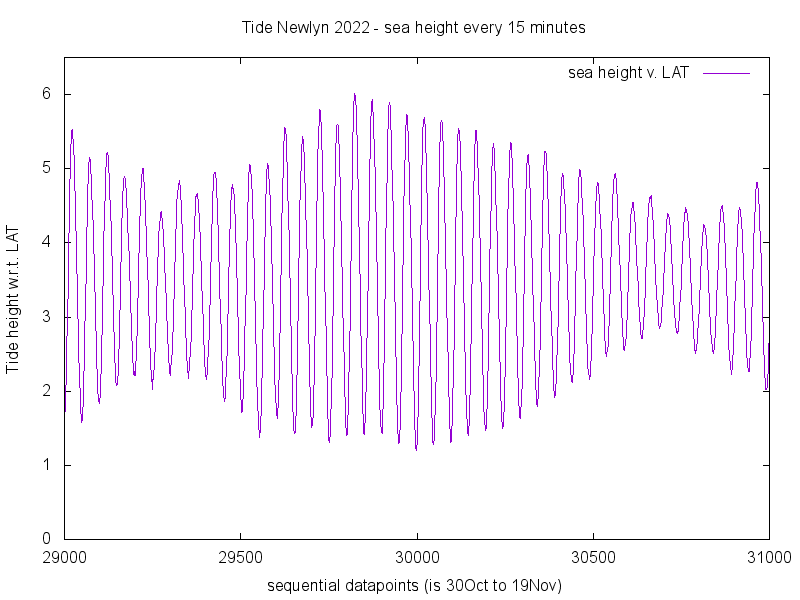
The form of these tide cycles is familiar to any seafarer who plans
voyages.
Hence - this presentation is "offlined" outside the main presentation.
Link to main / parent page "Tide Newlyn all 2022 data".
There are at least two tide-cycles to be seen here.
The term "spring" as in "Spring tide" has no relation to the season with that same name.
This graph has already been seen in the main article .

I choose sequential datapoint 30000 to inspect more closely. That happens to be at 11:45 in the morning of the 9th of November 2022.
Selected parts of the same "all 2022" data, centred around datapoint 30000, are plotted to give the two graphs following.
A day's tide cycles has the 2 fairly equal low/high cycles = "semi-diurnal tides". Two tide cycles is actually 24 hours and 50 minutes, which is 99~1/3 datapoints when recording every 15 minutes

To be seen - the two-week cycle of neap (smallest tide range) through
spring (largest tide range) back to neap.
(two weeks is 1344 datapoints when recording every 15 minutes)

(R. Smith, 25Mar2023, 26Mar2023 (sw. s-d n-s))